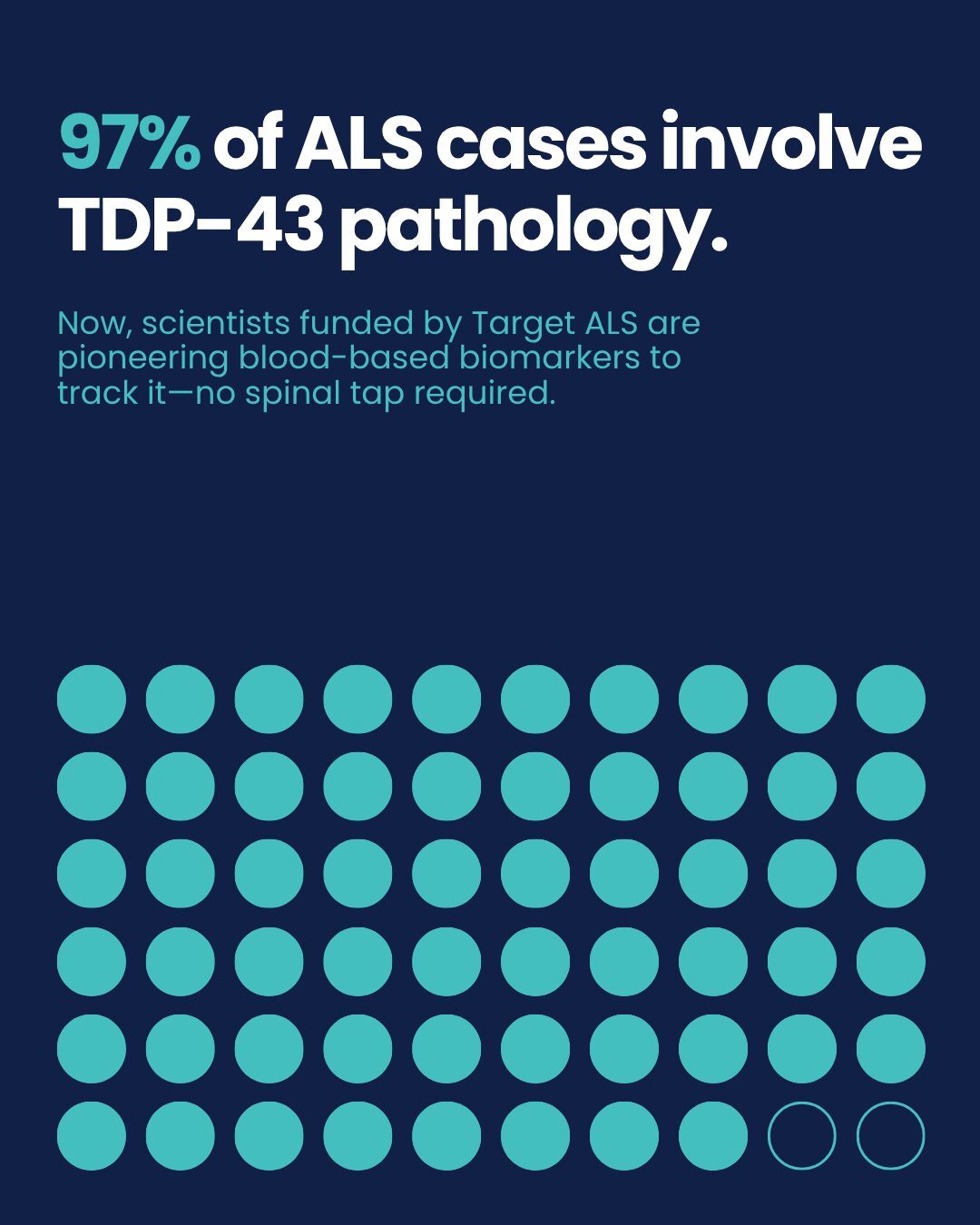Target ALS Awards Three Promising Projects to Accelerate Drug Development in ALS
Target ALS is proud to announce three newly funded research projects through our In Vivo Target Validation Program, an initiative that supports proof-of-concept studies for cutting-edge ALS therapies in living models of disease. These grants, conducted in partnership with contract research organization Biospective, help scientists test whether their experimental therapies can engage targets and modify disease progression in ALS-relevant mouse models.
Each project explores a novel therapeutic strategy and has the potential to rapidly advance new treatments toward clinical development.
VX-745: A Drug That Targets ALS at Its Core
Lead: Dr. James Shorter, University of Pennsylvania
This project tests VX-745, a brain-penetrant compound designed to block a key driver of toxic protein buildup in ALS: TDP-43 phosphorylation. VX-745 has already shown promise in human neurons and animal models of neurodegeneration. Now, it’s being tested to see if it can reduce disease symptoms and protect brain cells in a mouse model of ALS.
LINE-1 Inhibitors: Halting Neuroinflammation at the Source
Lead: Dr. Sarah Knutson, ROME Therapeutics
ROME Therapeutics is advancing a class of drugs that block LINE-1 reverse transcriptase, an enzyme that may drive inflammation and DNA damage in ALS. Their new compounds are specifically engineered to reach the brain and are being tested for their ability to reduce disease markers and improve function in ALS models.
Targeting GPR17: A New Path to Protect Nerve Support Cells
Lead: Prof. Marta Fumagalli, Università degli Studi di Milano
This team is focused on restoring the health of oligodendrocytes; the cells that insulate and protect motor neurons. Their therapy uses a small molecule to regulate GPR17, a receptor that helps these support cells mature. Early studies showed improved motor function and survival in ALS models, and this new research will test its effectiveness in models that mimic the most common form of ALS pathology.
Gene Therapy to Protect Motor Synapses
Lead: Prof. Brian McCabe, EPFL Switzerland
This project is testing MASK, a novel peptide delivered via gene therapy to preserve the motor synapses that control movement. Early studies in fruit flies and SOD1 ALS mouse models have shown improvements in motor function. Now, this therapy is being evaluated in a model of ALS driven by TDP-43 pathology.
These bold projects represent different but complementary approaches; ranging from small molecules and gene therapy to synapse and glial cell protection. Together, they push the field closer to the development of transformative treatments for ALS.
We look forward to sharing their progress at future scientific and community milestones.



